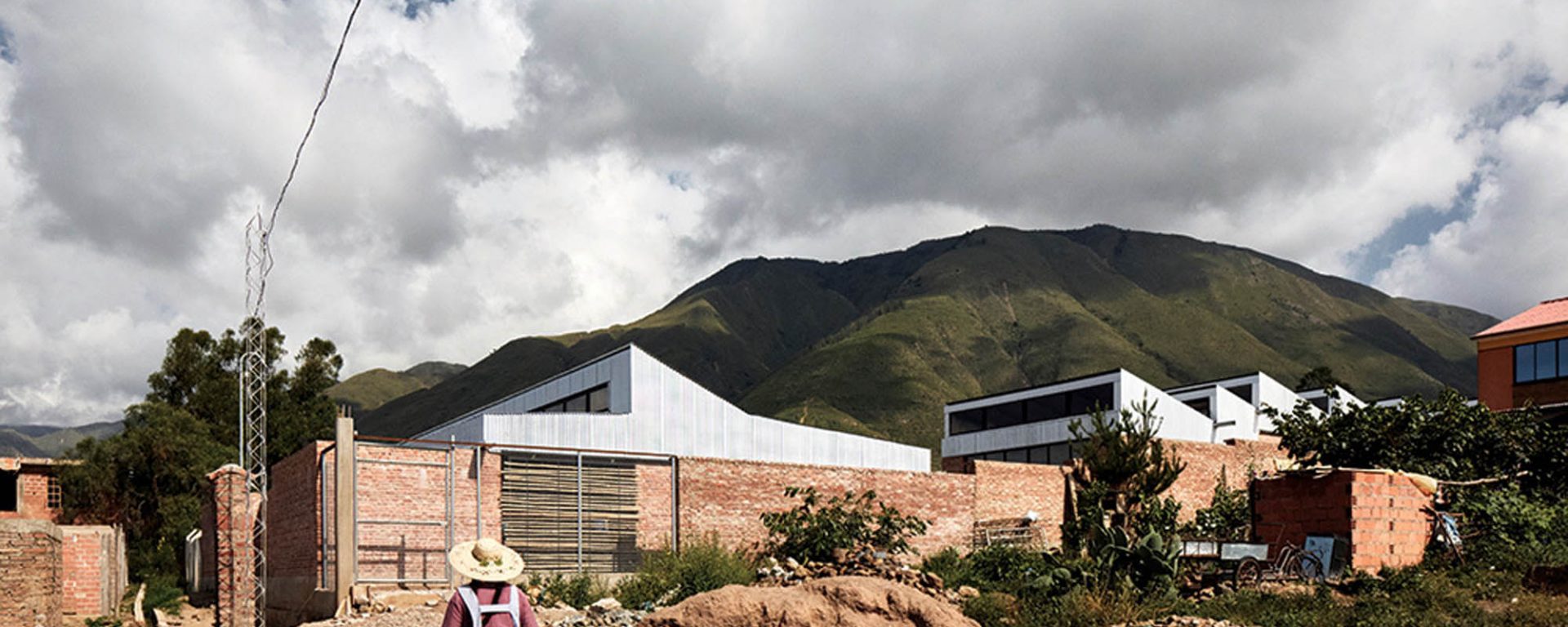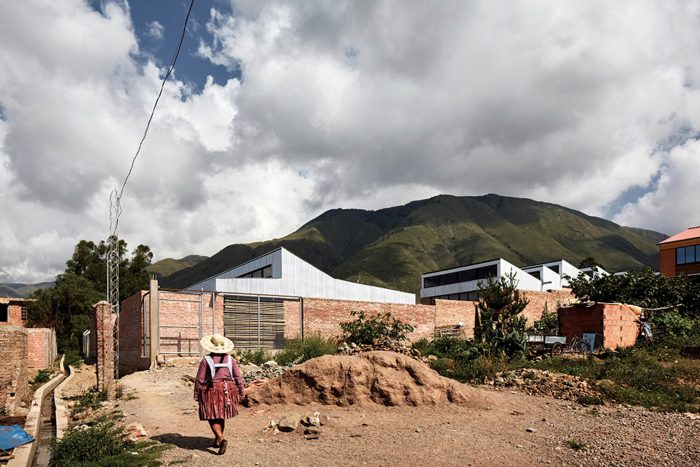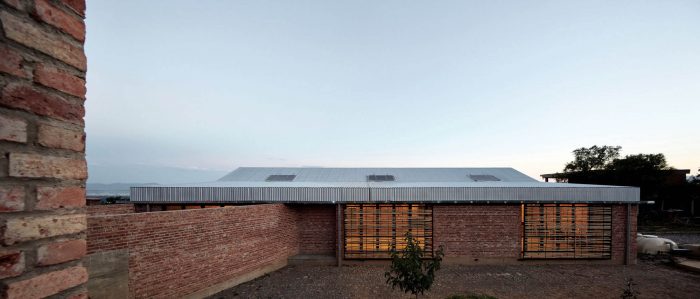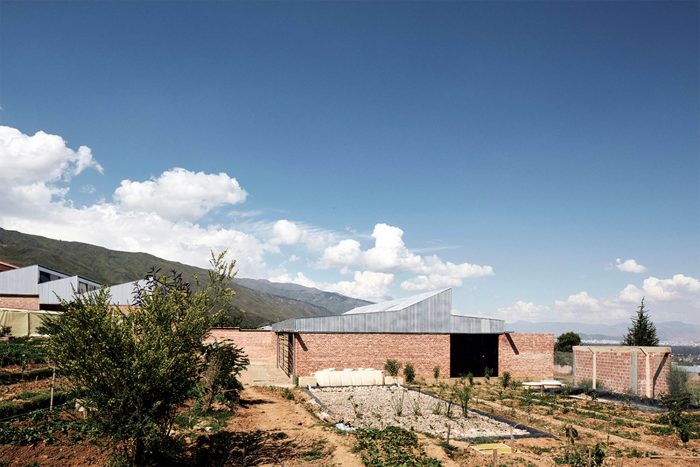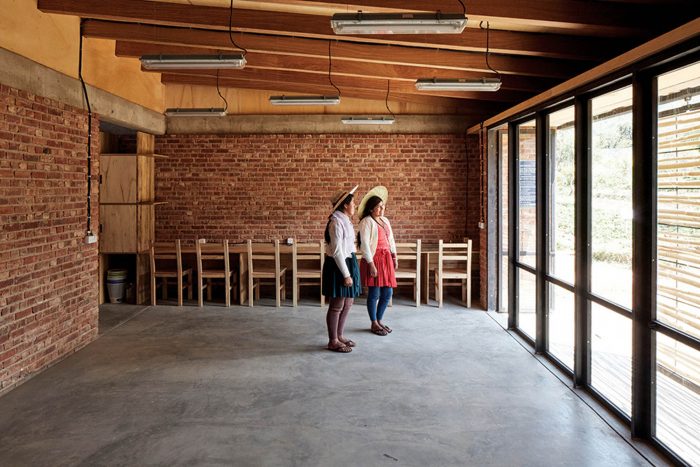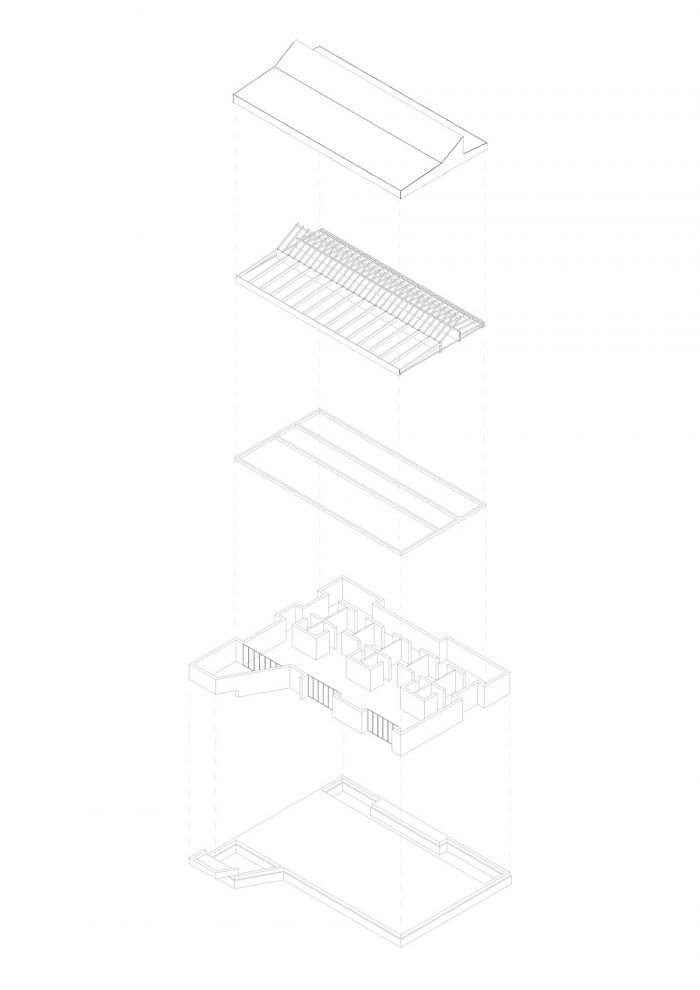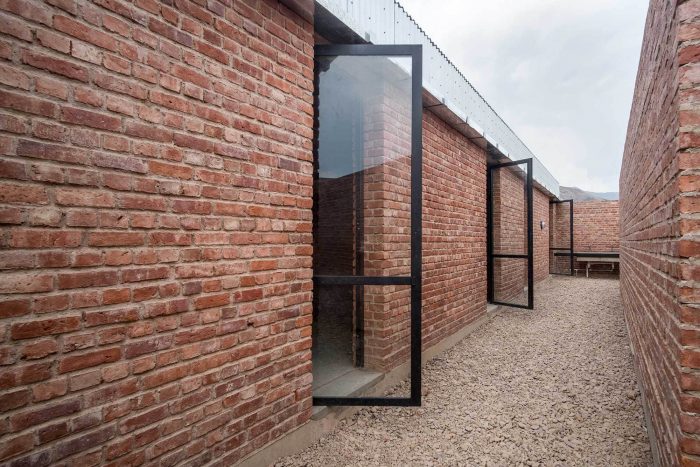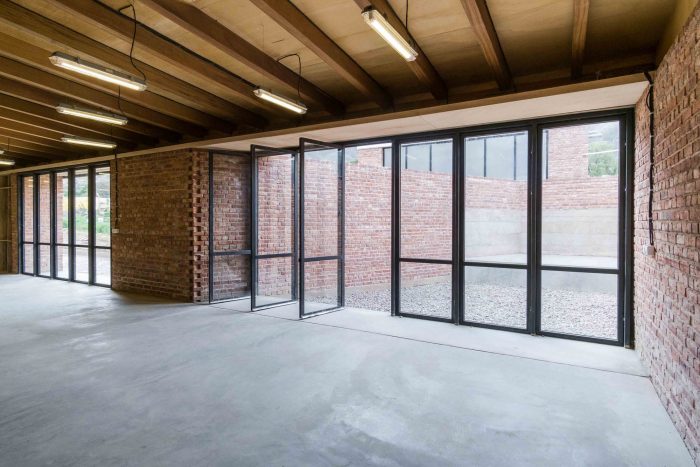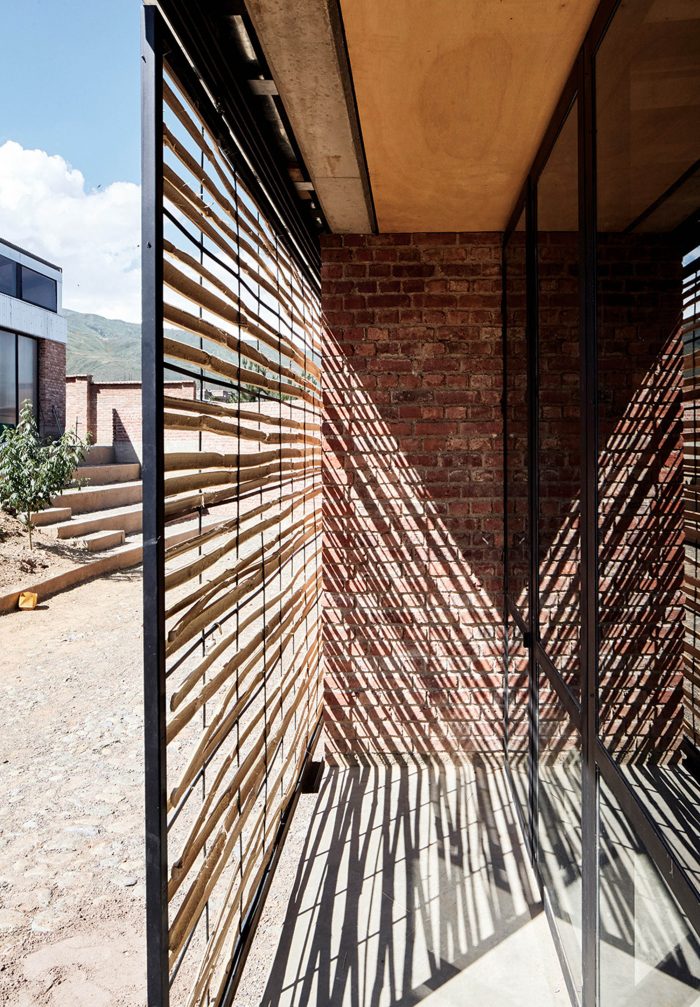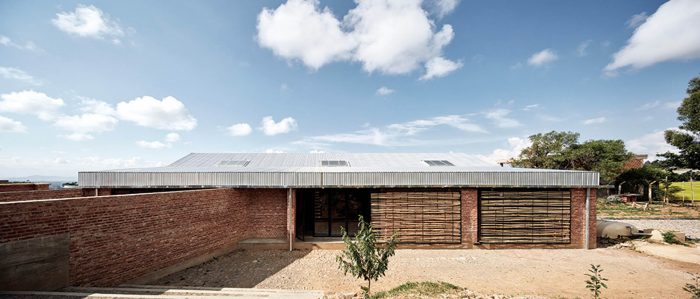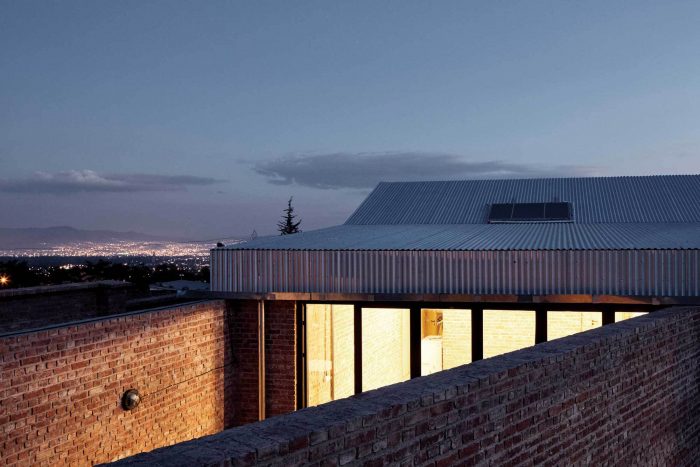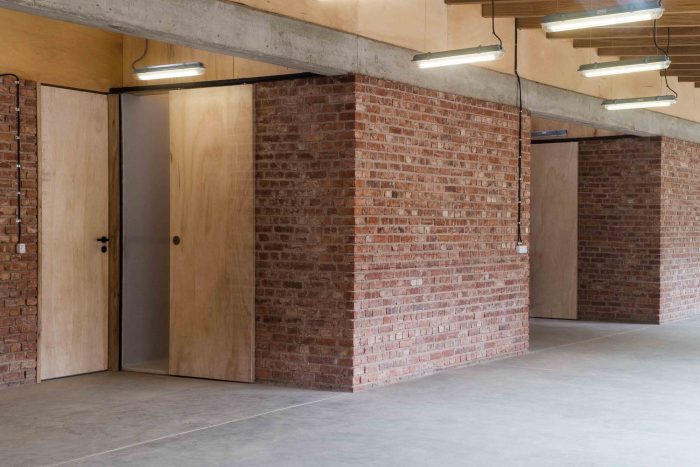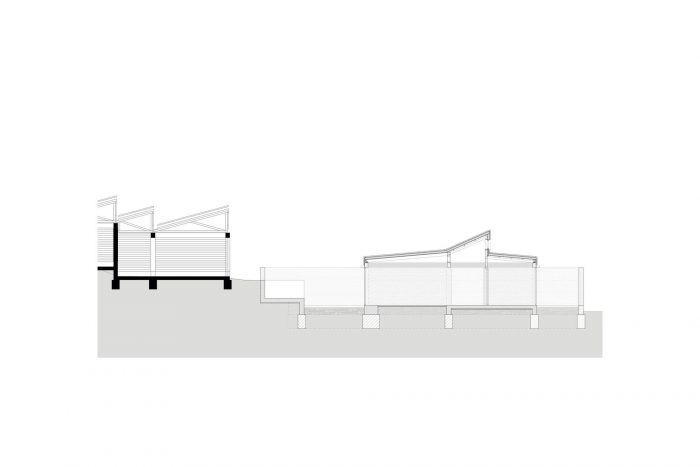贝拉维斯塔寄宿学校是在玻利维亚科恰班巴附近的农学校园的第二个建筑阶段规划和建造的。这个职业中心为来自玻利维亚极端贫困家庭的青少年提供了一个超越普通农业生存水平的视角。CODE和柏林工业大学设计与建筑系的Ralf Pasel教授致力于在玻利维亚的安第斯山村Bella Vista开展一个跨学科的长期项目,旨在开发针对贫困的当地解决方案,并为日益增长的城市化和农村人口减少等全球问题寻找解决方案。
The Bella Vista boarding school was planned and built during the second building phase of the Agronomy Campus near Cochabamba, Bolivia. The vocational center provides a perspective to juveniles from extremely poor families in Bolivia that goes beyond the common subsistence level of agriculture. CODE and Prof. Ralf Pasel at TU Berlin’s department for Design and Building Construction are dedicated to an interdisciplinary, long-term project in the Andean village Bella Vista, Bolivia, aiming to develop local solutions against poverty as well as finding solutions to global issues such as increasing urbanization and rural depopulation.
在与Fundación Cristo Vive Bolivia(一个致力于在拉丁美洲消除贫困的非营利组织)和其他当地利益相关者的国际合作中,CODE与柏林工业大学的学生一起设计、规划和建造了寄宿学校,这一合作过程始于2013-15年农业学校的建设,现在新的寄宿学校已经完成。新建的寄宿学校构成了农业区的程序性延伸,并建立了一个广泛和大规模的农学校园。
In an international cooperation with Fundación Cristo Vive Bolivia (a non-profit organization dedicated to the fight poverty in Latin America) and other local stakeholders, CODE designed, planned, and constructed the boarding house with TU Berlin students in a collaborative process that began with the construction of the agriculture school in 2013-15 and that now was completed with the new boarding school. The newly build boarding school constitutes the programmatic extension of the agricultural zone and sets up a broadly and large-scale agronomy campus.
因此,新建筑在功能上补充了现有的农业学校,即学生宿舍、讲师室、厨房、用于用餐和学习的多功能室以及几个独立的浴室。宿舍的建筑允许有接触和休息的空间。两个封闭的私人天井构成了校园周边有质量的户外生活空间的延伸。
Consequently, the new building complements the existing agricultural school in its functions with i.e. a dormitory for the pupils, a room for the lecturer, a kitchen, a multipurpose room for dining and study as well as several individual bathrooms. The architecture of the boarding house allows spaces for encounter and rest. The two enclosed private patios form an extension of the surrounding qualitative outdoor living spaces on the Campus.
Architects: CODE / Prof. Ralf Pasel / TU Berlin
Year: 2018
Photographs: Cristobal Palma / Estudio Palma, Johannes Belz
Team:Ralf Pasel, Andreas Skambas, Lorena Valdivia, Anna Wortmann, Max Hacke with Students of TU Berlin
Client:Fundación Cristo Vive Bolivia
City:Cochabamba
Country:Bolivia

